Money Talks
UH Professor Frank Holt Decodes Ancient Coins to Reconstruct History
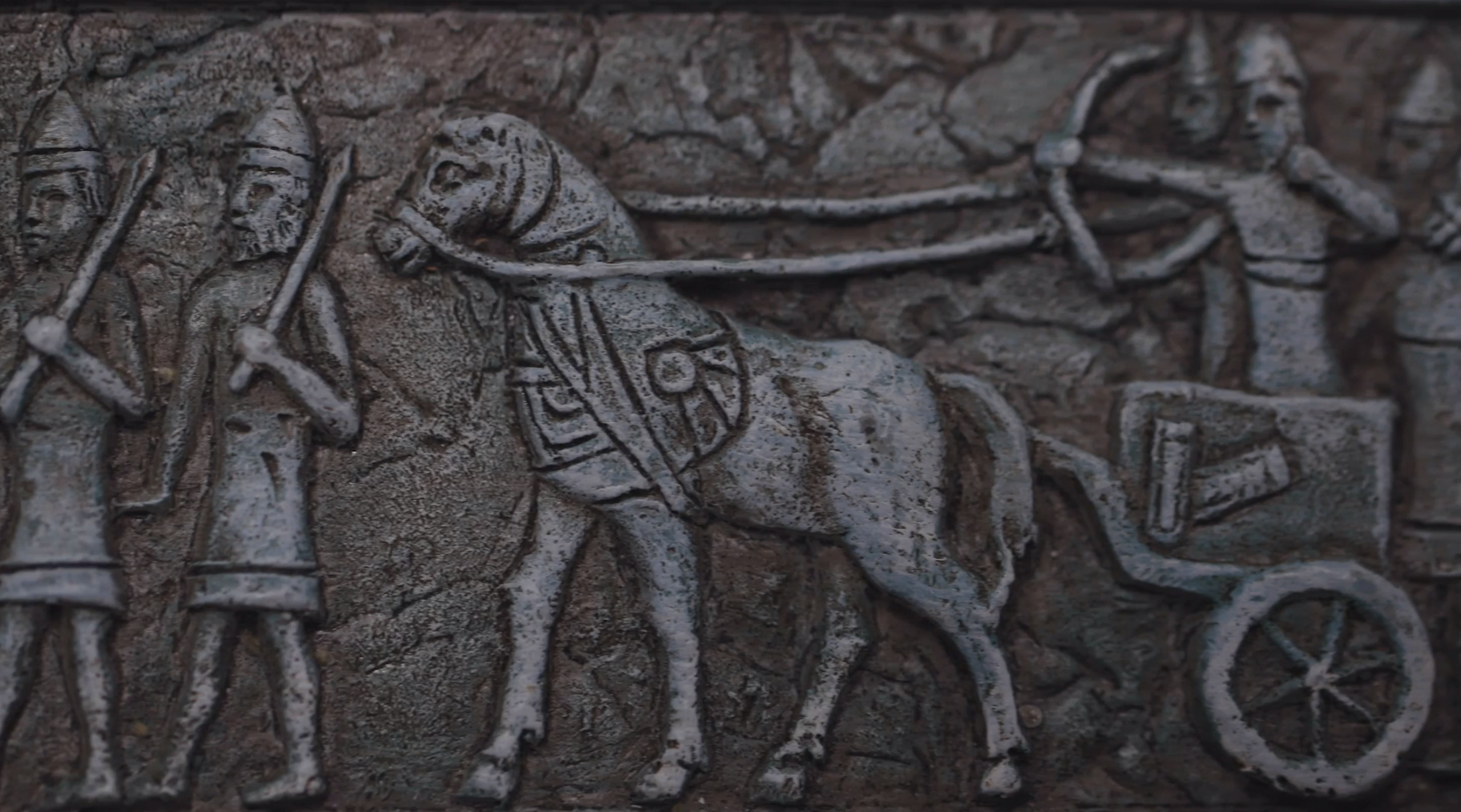
University of Houston history professor Frank Holt hasn’t just studied ancient history, he’s reconstructed and rewritten it. Holt has discovered kings and queens of ancient civilizations by studying the heritage of ancient coins. It’s an area of study called numismatics.
The world’s oldest known coin originated around 620 B.C. in the area of Lydia, an Iron Age kingdom of western Asia Minor, where modern day Turkey is found. More than currency, Holt says these early coins were a means of mass communication and disks for preserving history. By the second century B.C., coins were issued not just by states, but also by kings and queens. Every year, Roman emperors had new coins designed to boast about buildings they had constructed or wars they’d won.
“The more we find, the more we study. We are able to recreate the entire civilization of the Greeks in Afghanistan based almost entirely on coins: their relationships, political events, wars, things of that type,” said Holt, who has written eight books that explore ancient civilizations, from Alexander the Great to rediscovered kings of ancient Afghanistan. “We can work it all out as long as we have enough numismatic evidence to piece it together. Coins literally are like ransoms bringing these lost kings and queens to life.”
From Lydia more than 2,600 years ago, this coinage soon spread to the Greek cities of coastal Asia Minor then to other islands and the mainland. Eventually, all who traded with the Greeks, including the Romans, adopted similar technology, and coins spread throughout the Mediterranean world.
“These coins didn’t really need marks of value because their worth was the weight in gold or silver. Mints increased the amount of messaging by imprinting both sides. That’s why we as historians get so excited,” said Holt, who is recognized as one of the world’s leading authorities on Alexander the Great, Hellenistic Asia and the study or collection of currency, including coins. He likes to say he didn’t go into history for the money. He went into money for the history. But history – and how we study it – are always evolving.
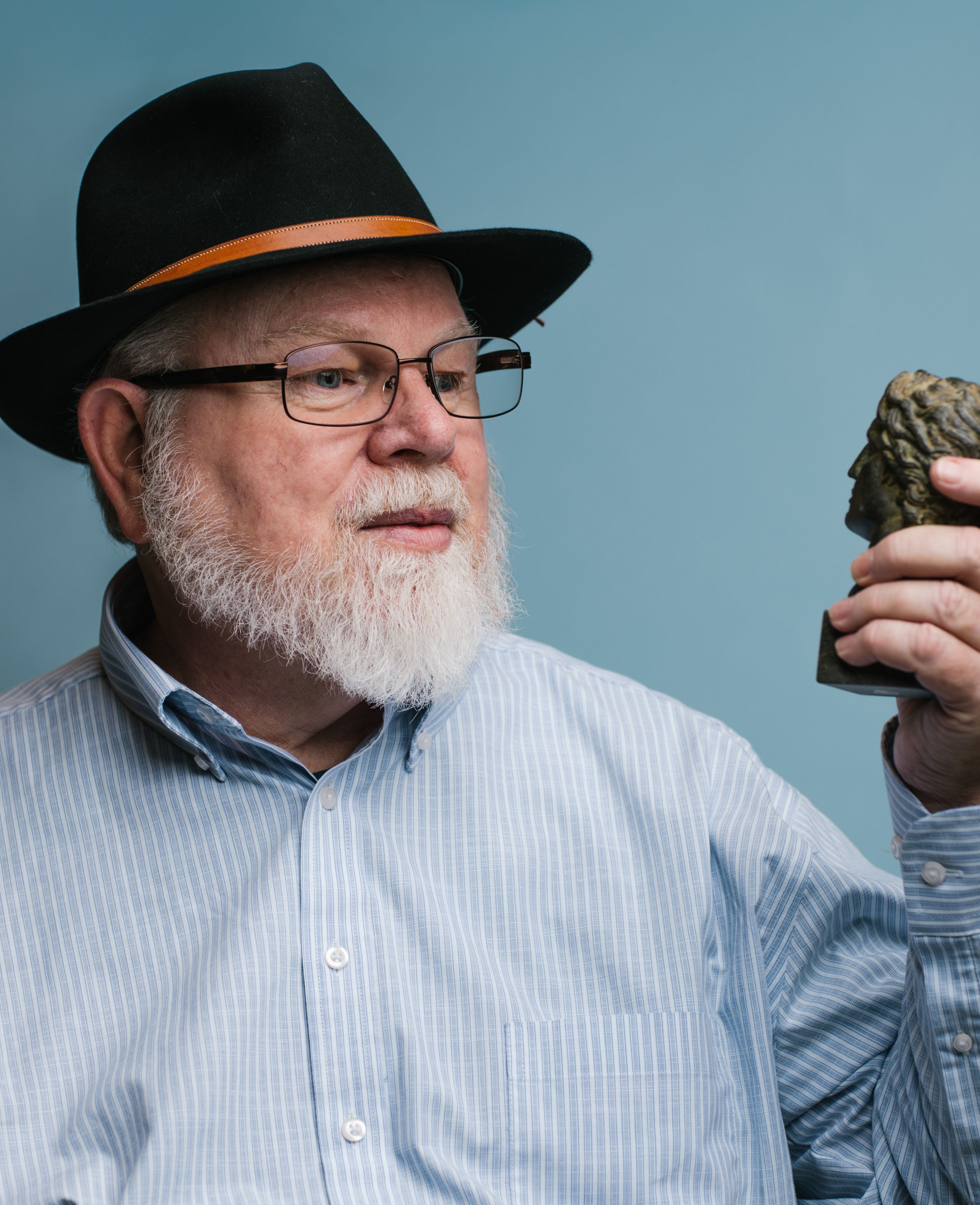
UH Professor of History Frank Holt is one of the world’s leading authorities on Alexander the Great, Hellenistic Asia and new research methodologies such as cognitive numismatics.
UH Professor of History Frank Holt is one of the world’s leading authorities on Alexander the Great, Hellenistic Asia and new research methodologies such as cognitive numismatics.
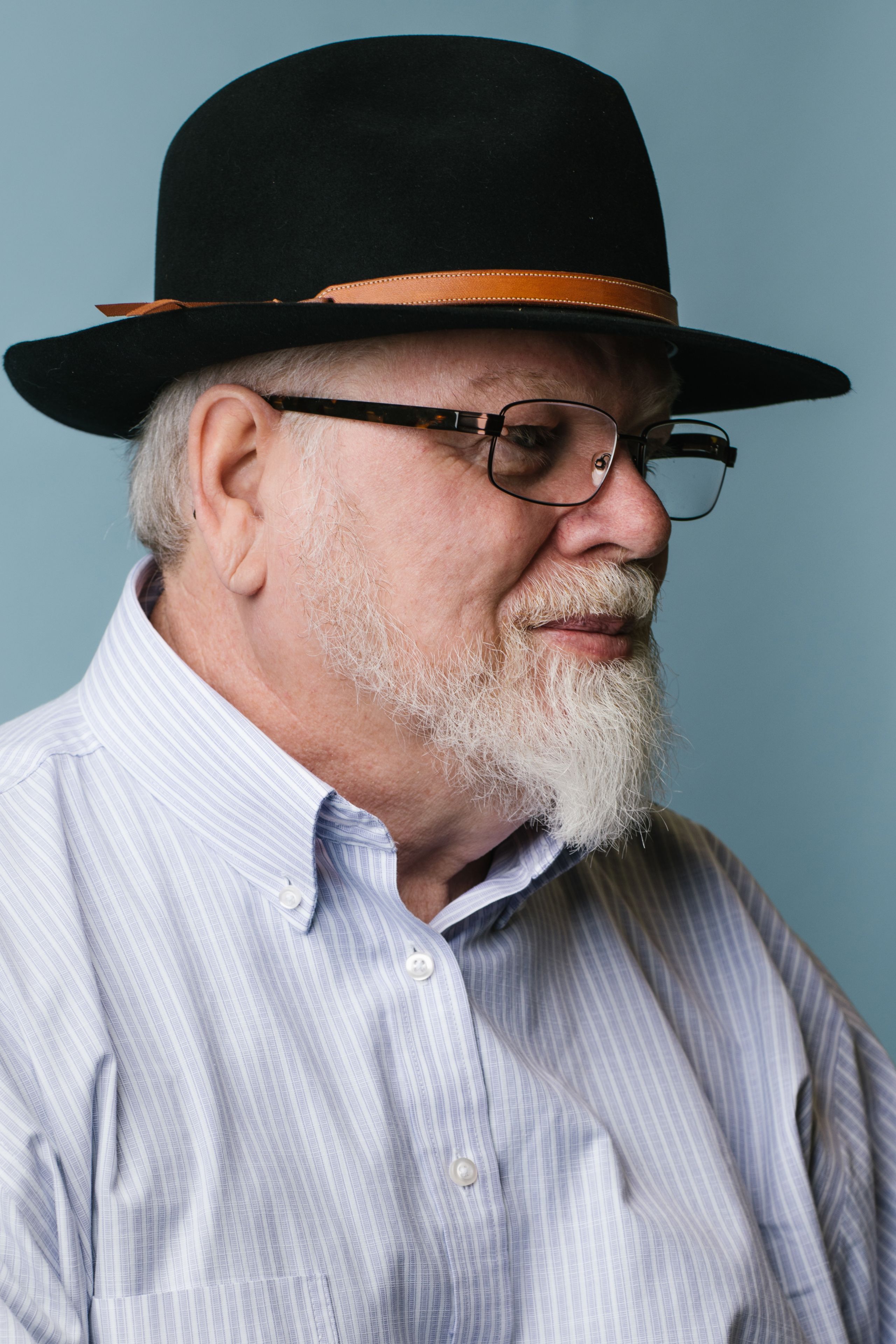
UH Professor of History Frank Holt is one of the world’s leading authorities on Alexander the Great, Hellenistic Asia and new research methodologies such as cognitive numismatics.
UH Professor of History Frank Holt is one of the world’s leading authorities on Alexander the Great, Hellenistic Asia and new research methodologies such as cognitive numismatics.
But Holt admits he is the unlikeliest of scholars.
“I didn’t come from an academic background at all,” he said. “My parents both dropped out of high school in the tenth grade and had to work hard all of their lives. No one else in the family ever aspired to go to college, so it was a path I had to maneuver all on my own.”
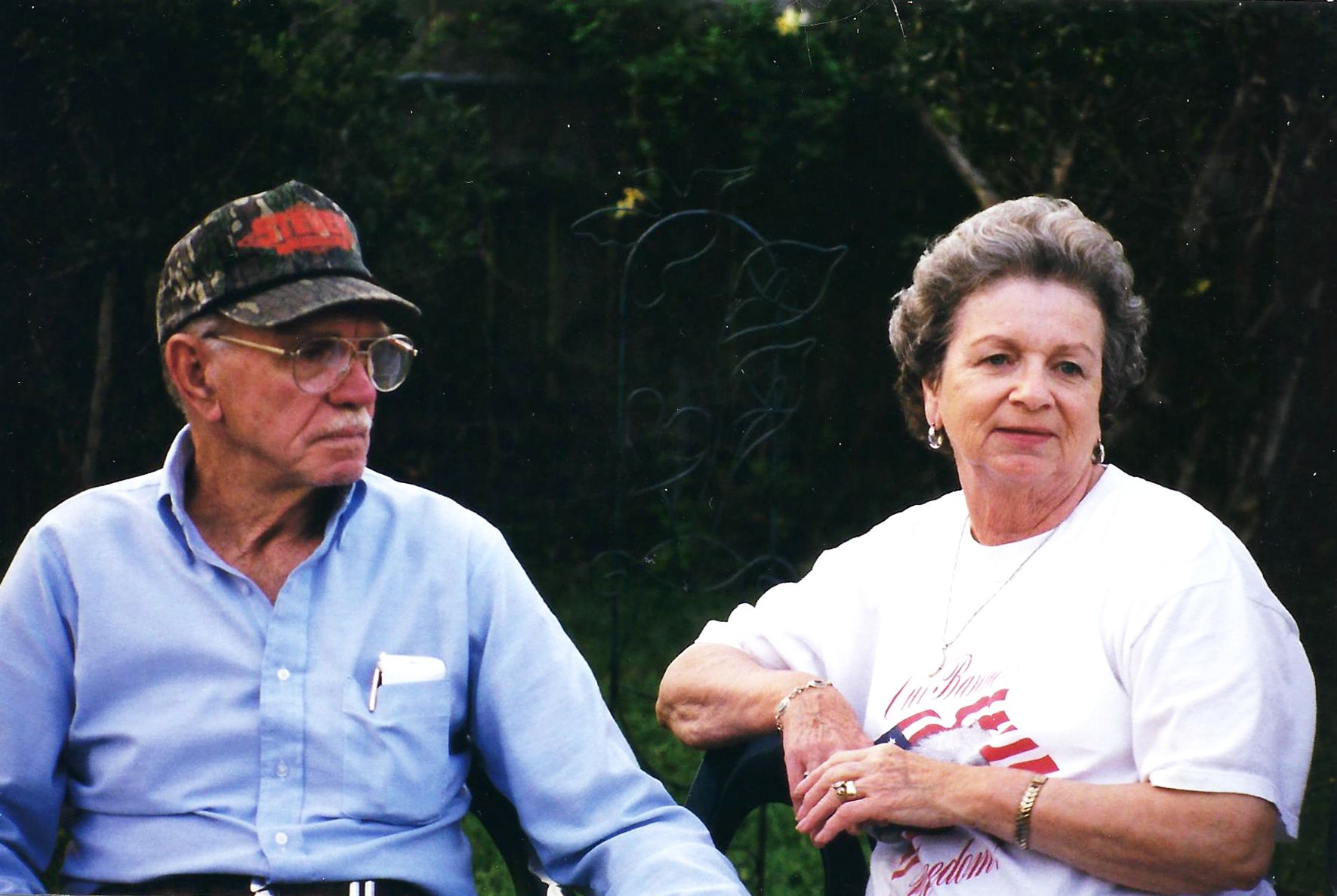
Frank Holt's parent, Benny and Jane Holt, in 1990 while visiting Houston.
Frank Holt's parent, Benny and Jane Holt, in 1990 while visiting Houston.
That path was paved with student loans and a job as a clerk at Kroger— a position Holt held for 10 years, from high school through graduate school. He left the store the same day he left his hometown of Lynchburg, Va., with his wife and young daughter to take a one-year visiting assistant professor job in the history department at the University of Houston. That was in 1982. Holt has been at UH ever since.
As a child, Holt was fascinated with airplanes and dreamed of being a pilot. That dream was shattered when he suffered a serious eye injury at age 12, when a piece of steel from a hammer flew off and struck his right eye as he and friends were building a treehouse. He lost vision in that eye.
“It ended any hopes of me being a pilot— I didn’t have depth perception, so I then began to think of other things, such as being a writer or teaching English, but I never thought about being a professor.”
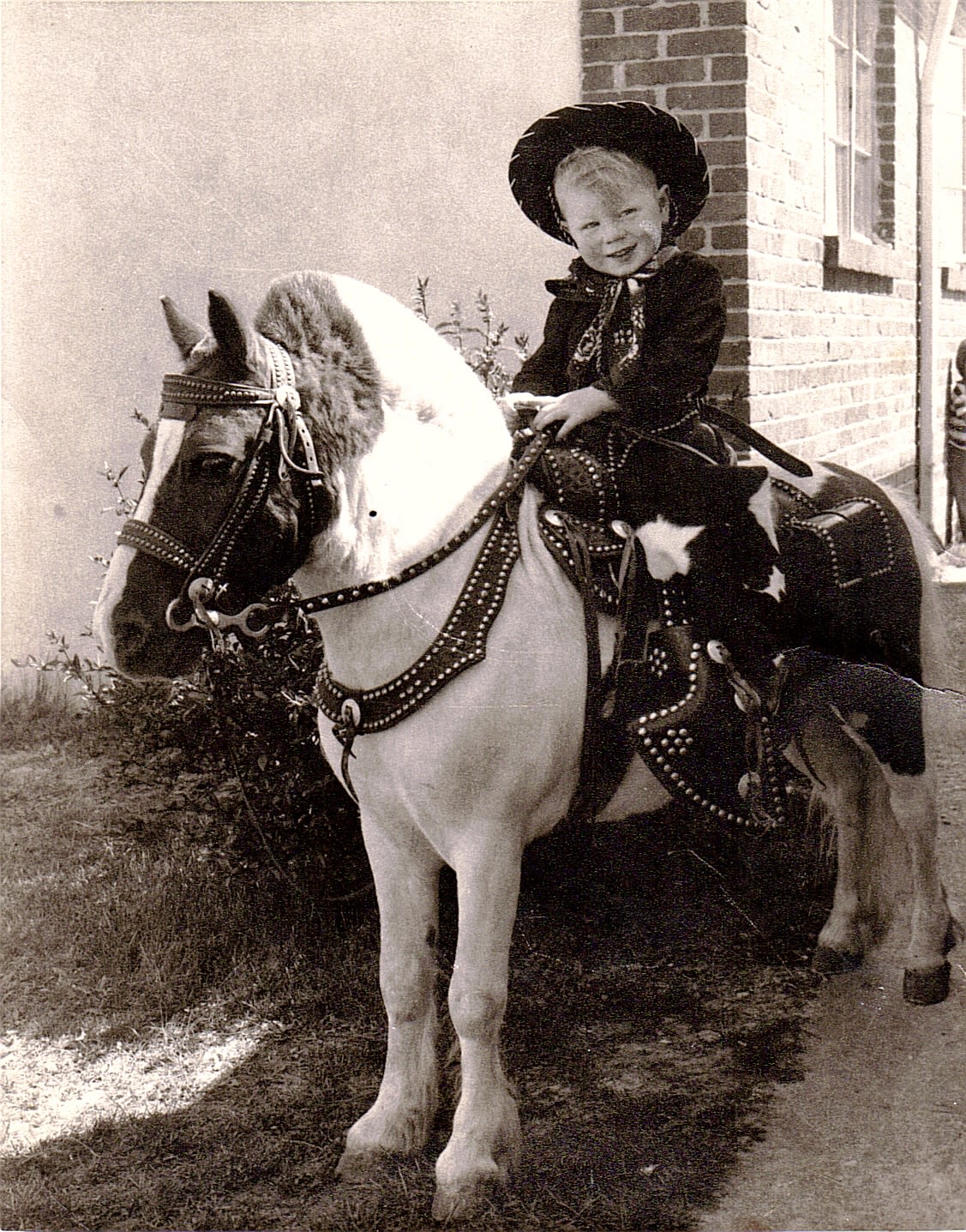
Holt as a young boy riding a pony in Richmond, Virgina.
Holt as a young boy riding a pony in Richmond, Virgina.
That changed at Lynchburg College, where Holt started out as an English major. A course in Western civilization that began with the Egyptians, Greeks and Romans “turned on a lightbulb” and sparked a passion for ancient history. He added history as a second major and, even without a background in Latin, Greek or the classics, aimed for graduate school in ancient history. Holt was an unlikely candidate, but he once again found himself maneuvering his own path when he was accepted to graduate school at the University of Virginia, where he learned the languages alongside the history. He even minored in Classics.
A professor there told Holt that if he wanted to learn about Greek history, he would have to become an expert on coins because they are the only continuous records ancient history.
“He asked, ‘What do you know about coins?’ I said ‘nothing.’ Well, he said, you are going to have to become an expert on coins because that’s the major source of information that survives about all those Greeks. That’s when I became serious about studying numismatics.
There was no stopping Holt. His desire to learn about ancient history was so profound that he drove 140 miles roundtrip from Lynchburg to Charlottesville every day, working at the Kroger store 20 hours per week and serving as a teaching assistant at UVA. His wife read from his textbooks into a tape recorder so he could listen while driving. Holt received both his masters and doctoral degrees from the University of Virginia. His dissertation advisor later told him his acceptance into the program “was a gamble” but his enthusiasm convinced the faculty to give him a chance.
While working on his dissertation in 1980, Holt studied at the American Numismatic Society in New York City, the premiere research institution in the United States for coins, with the nation’s largest collection of coins from all periods and cultures.
“I went to New York and acquired the skills necessary to keep my career going from that point to this,” said Holt.
Holt, who says his family had been too poor to collect coins, was on his way to becoming an expert in numismatics.
National Endowment for the Humanities (NEH) Grant
Holt’s enthusiasm for history hasn’t waned in the more than 40 years since he first broached the subject. He will soon publish his ninth book – supported by a $45,000 Public Scholar Program grant from the National Endowment for the Humanities. Fewer than 10% of people who apply for this grant are selected.
The book “This Beautiful Science: A Journey into the World of Coins” looks at the significant role of numismatics and how it shapes society as we know it.
“Cryptocurrency is posing a huge challenge right now on how we think about wealth and money and changing the way business is done. What I’d like to remind people is that’s exactly what happened in 620 B.C.,” he said. “We are going through another revolution like that. It pays to understand what happened the first time so you can understand what’s happening now.”
From a kid who grew up in a house without plumbing or running water and had never left his small town until he entered college, to a world renowned scholar who has traveled the globe, Holt says his pursuit of history and higher education changed the course of his life.
“I think the challenges I faced during my younger years have made me a better teacher. I understand what our students— many who work— what they go through,” he said. “It was not an easy start, but it’s worked out well. I am so glad I came to UH and have been able to stay at UH.”
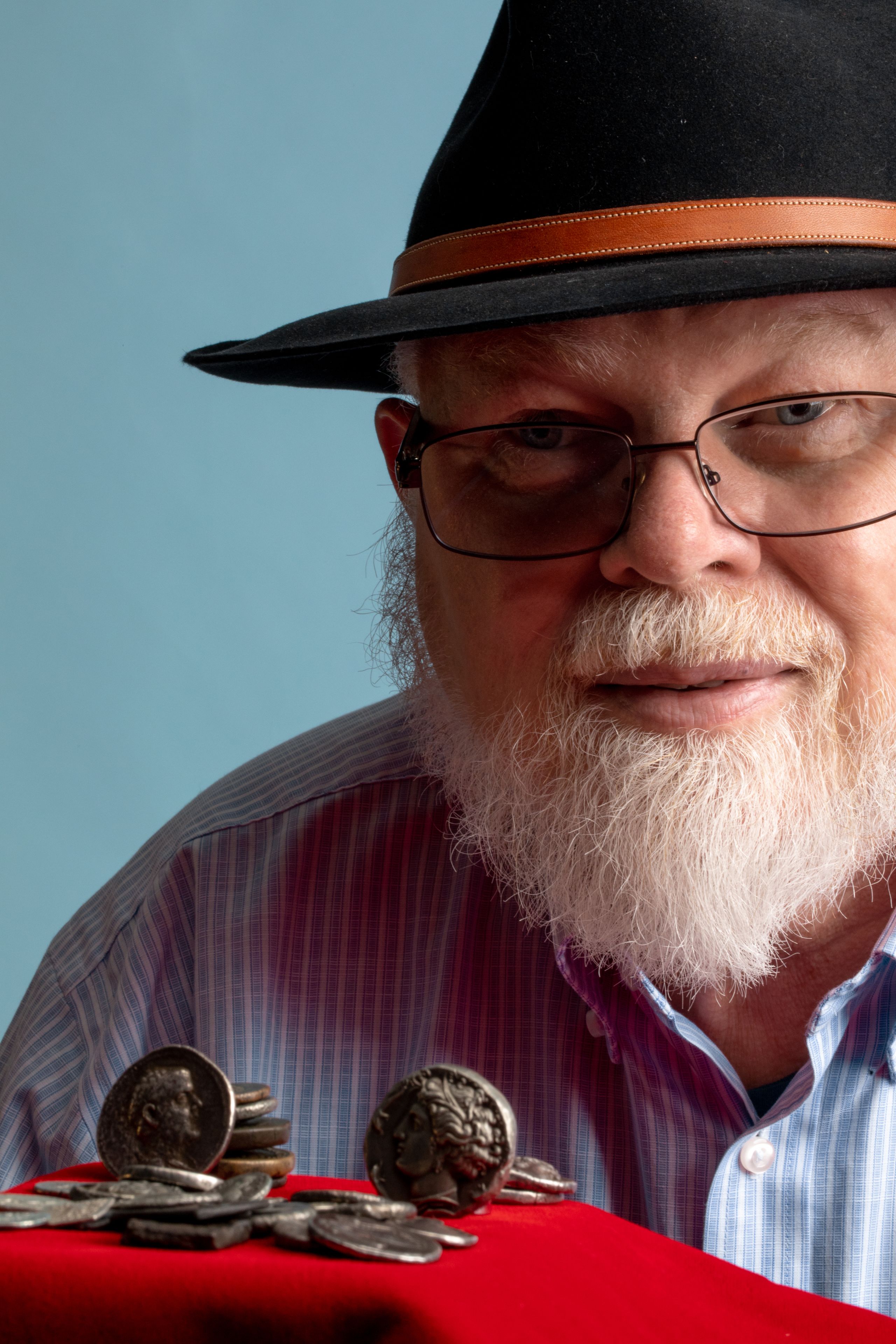
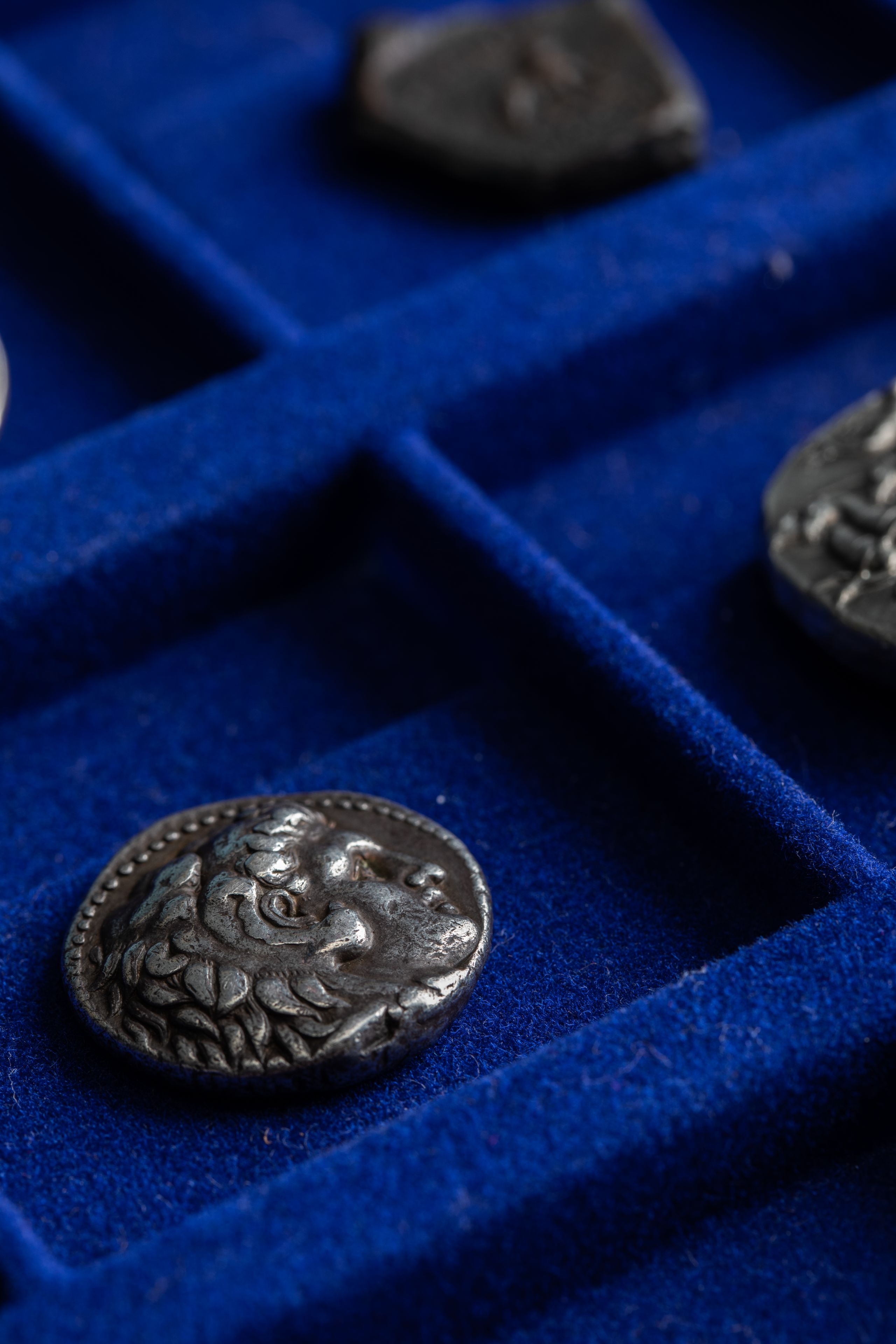
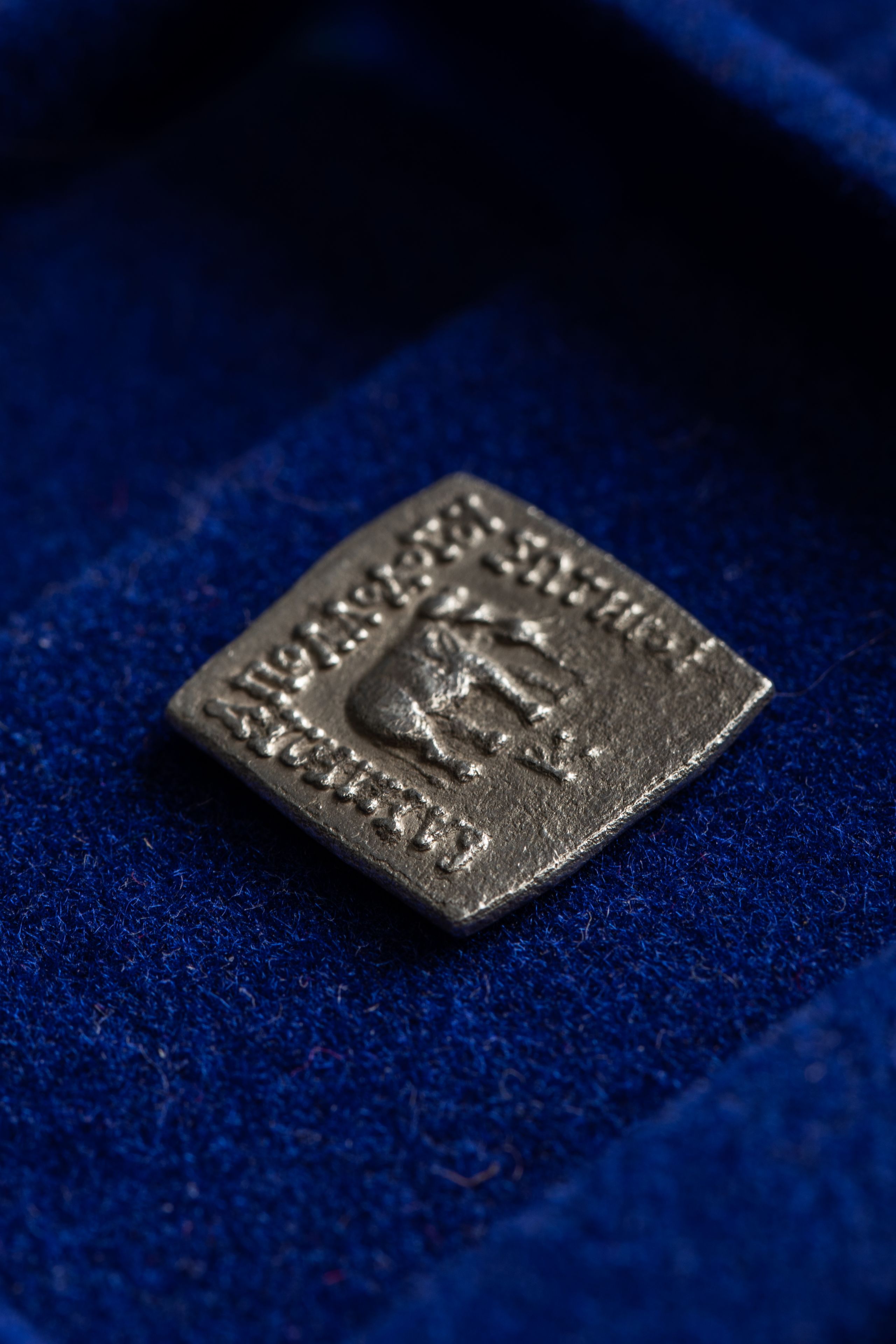
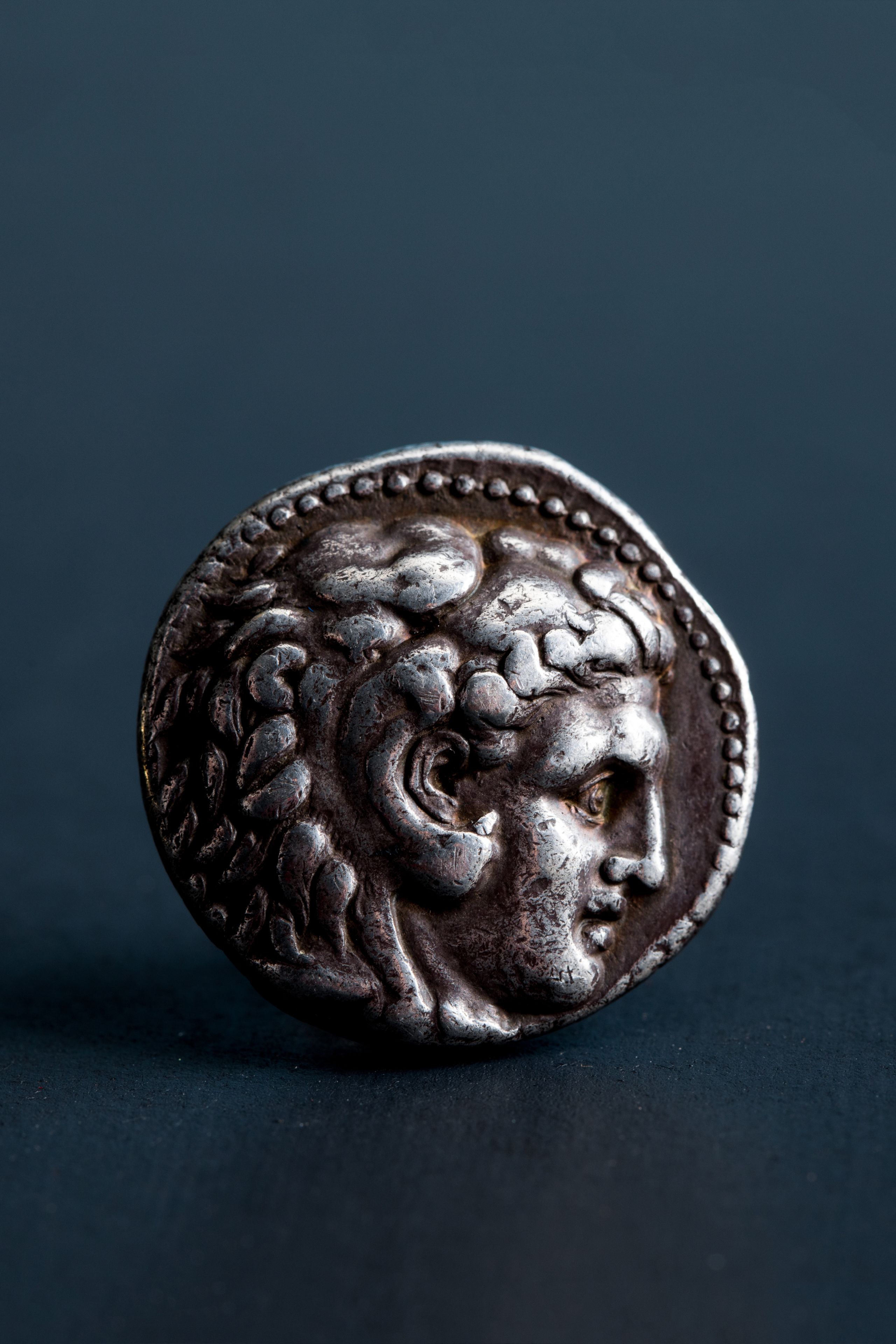
Credits:
Story by Sara Tubbs and Shawn Lindsey | Videography by Aaron Rodriguez and Greg Ortiz | Photography by Jessica Almanza, Ben Corda and family of Frank Holt | Layout by Damisi Delaney
For more feature stories from the University of Houston, visit stories.uh.edu.
A communication by the University of Houston Division of University Marketing, Communication and Media Relations.
Do you have a story idea you'd like to share with UH?
Email us at stories@uh.edu. We regret that we cannot respond to every submission. If your submission is a good fit, we will follow up with you directly.

